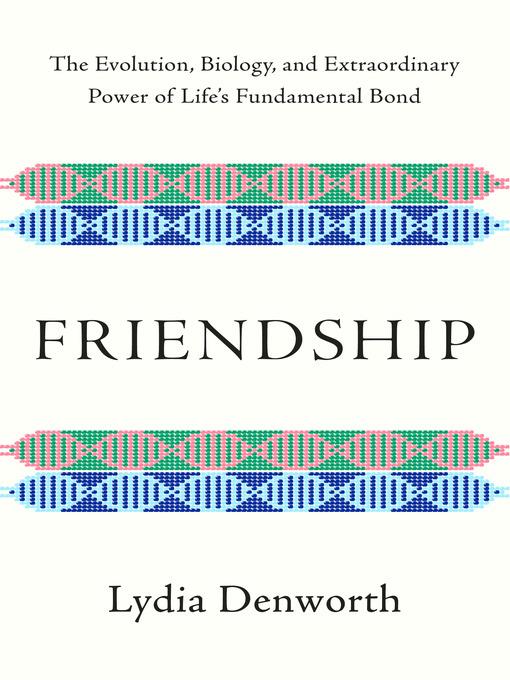
Friendship
The Evolution, Biology, and Extraordinary Power of Life's Fundamental Bond
کتاب های مرتبط
- اطلاعات
- نقد و بررسی
- دیدگاه کاربران
نقد و بررسی

September 9, 2019
Science writer Denworth takes a broad look at the origins and functions of friendship in her intriguing debut. Her focus ranges from animal behavior to neurobiology and from sociology to psychology and physiology. After speaking with many leading researchers, Denworth draws several striking conclusions—notably that, having been found in an extensive variety of species, friendship has deep evolutionary roots. This helps explain the large panoply of positive health benefits associated with friendship and, inversely, the dire medical consequences she reports as sometimes arising from loneliness. Denworth also examines the impact of virtual relationships and the increased use of technology by different generations, concluding that research demonstrates no net benefit or harm from social media use: “Friendship, real friendship, hasn’t changed much. It is alive and well, even thriving.” Her reporting is peppered with personal asides about how she and her family members have navigated various relationships. While this enlivens her work’s more technical facets, it does potentially give the impression of putting anecdotal experiences on a par with evidence-based studies, thus undercutting the importance of the latter. Science enthusiasts may find Denworth’s survey wider than it is deep, but it does provide an effective introduction to its subject.

October 15, 2019
Exploring the science of friendship. In the past few decades, friendship has become the target of studies by neuro- and social scientists who have established that seeking and building connections to others is essential for human survival. As Scientific American contributing writer Denworth (I Can Hear You Whisper: An Intimate Journey Through the Science of Sound and Language, 2014, etc.) notes, the science has its roots in the studies of the mother-infant bond as well as the animal behavior work of Konrad Lorenz and others, later field studies of chimpanzees, macaques, and other primates, and, more recently, the work of primatologist Frans de Waal. Their observations can now be complemented by advances in technology. For example, near-infrared spectroscopy has been used to show that a section of the brain of a 5-month-old infant lights up when the baby sees a video of a mother playing peekaboo but not when viewing, say, an animated toy. The evidence from brain scans, genetic studies, and other physiological data underscores how social connectivity has been built into our systems; we demonstrate a "need to belong." Denworth traces this need over the lifetime, discussing the behavior of toddlers, preteens, adolescents, and adults. Of special interest is a second major growth spurt in the brain that occurs during puberty and features rapid growth in the emotional sections of the brain. At this time, scans show that the mere presence of peers lights up reward areas of the brain--a possible spur to impulsivity and risk-taking. (Most teenage driving accidents happen when friends are in the car and not when the driver is alone.) The author also discusses social networks and social media (not likely to replace face-to-face friendships). In addition to examining the scientific underpinnings of friendship, Denworth capably demonstrates how loneliness, an increasing hazard as Americans age and lose friends and family, is truly a health- and life-threatening condition, and there are things to be done to avoid it. Convincing evidence that evolution endowed us with a need for friends, support, comfort, stimulation, and, ultimately, happiness.
COPYRIGHT(2019) Kirkus Reviews, ALL RIGHTS RESERVED.

November 1, 2019
Denworth (I Can Hear You Whisper) argues that humans are wired for friendship, and that in order to thrive we have a biological need for connection. In a personable and accessible style, Denworth lays out her argument, exploring the biological underpinnings and the evolutionary history of friendship. Denworth takes readers along with her as she travels to the island of Cayo Santiago off the coast of Puerto Rico to learn about the complex social dynamics of rhesus macaque monkeys and to Los Angeles, where she spends time with older adults participating in Generation Xchange, a loneliness intervention program that pairs older adults with elementary school classrooms. In between, Denworth writes about the work of many scientists and their numerous studies, covering topics such as the connection between social relationships and mortality and the evolutionary advantage that friendship provides, all the while peppering her writing with tales of her own children and their friendships. VERDICT After reading Denworth's treatise on friendship, you may want to immediately call your best friend, or make a new one. Recommended for fans of human biology and nonfiction browsers.--Ragan O'Malley, Saint Ann's Sch., Brooklyn
Copyright 2019 Library Journal, LLC Used with permission.

Starred review from December 1, 2019
This critical and convincing scientific investigation into friendship from Denworth (I Can Hear Your Whisper, 2014) urges readers to understand quality friendship as a biological necessity, not a luxury. Denworth's research demonstrates that prioritizing friendship through effort and attention protects our health and longevity. In the inverse, friendship's lack is not benign. Loneliness is a biological killer. In the final chapter, a childless, spouseless woman in her late sixties experiences a panic attack that feels like a heart attack and brings an ambulance to her door. Denworth's examination of friendship as the antidote offers readable breakdowns of dozens of scientific studies, including those done on a monkey haven on Cayo Santigo Island near Puerto Rico and studies on newborns in London's Babylab. Evidence of our experiences of friendship and loneliness are in our DNA and can be seen at the cellular level. The good news is that friends can be made at any age. Denworth's work achieves the best of science writing by making complicated concepts clear. She uses intelligent observation, empathy, and curiosity to offer a friendship manifesto that will absolutely affect readers' own personal approaches to friendship.(Reprinted with permission of Booklist, copyright 2019, American Library Association.)

























دیدگاه کاربران